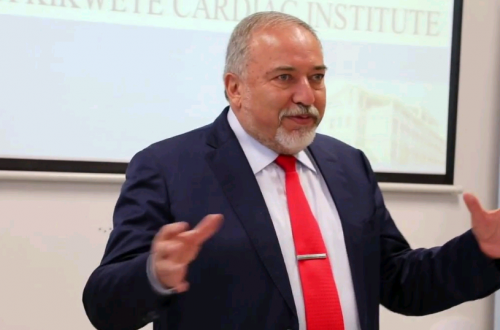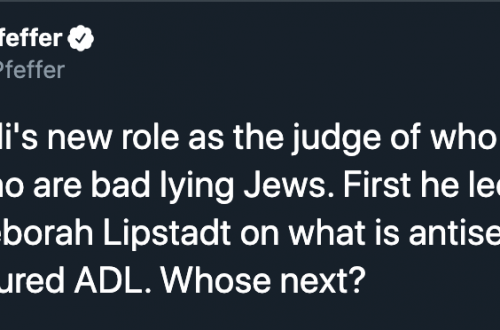This is a cross post by Mark Gardner from The CST Blog
Independent columnist, Johann Hari, today admits to having plagiarised the work of others. He also admits to having branded someone as an antisemite, in order to wrong them. His admission and apology:
The other thing I did wrong was that several years ago I started to notice some things I didn’t like in the Wikipedia entry about me, so I took them out…I created a user-name that wasn’t my own…I continued to edit my own Wikipedia entry and some other people’s too…
…in a few instances, I edited the entries of people I had clashed with in ways that were juvenile or malicious: I called one of them anti-Semitic and homophobic, and the other a drunk. I am mortified to have done this, because it breaches the most basic ethical rule: don’t do to others what you don’t want them to do to you. I apologise to the latter group unreservedly and totally.
It seems that Christina Odone was Hari’s victim of the antisemitism smear. (She had doubted Hari when deputy editor to him at the New Statesman.)
Johann Hari featured in CST’s “Antisemitic Discourse in Britain in 2008″ Report (largepdf here). It was in the section entitled, “Antisemitic Discourse: Misconseptions and Smears”. Given today’s revelations, Hari’s entry is well worth a read. This was it:
Johann Hari, columnist, the Independent, “Loathsome smearing”
Commentators who allege that antisemitism is being maliciously abused, often fail to adequately specify whom they are – and are not – actually charging with this allegation. Such failures risk leaving the reader with the overall impression that you must not trust Jews when they complain about antisemitism.
One particularly vivid example of this analytical failure occurred in the Independent newspaper where columnist Johann Hari wrote an article entitled “The loathsome smearing of Israel’s critics”. Hari has repeatedly been explicit in his condemnation of antisemitism, but nevertheless believes that the term is prone to abuse.
The opening paragraph of his article stated:
In the US and Britain, there is a campaign to smear anybody who tries to describe the plight of the Palestinian people. It is an attempt to intimidate and silence – and to a large degree, it works. There is nobody these self-appointed spokesmen for Israel will not attack as anti-Jewish: liberal Jews, rabbis, even Holocaust survivors.
Hari’s article was premised upon angry responses that he had received to a previous piece, in which he used the themes of Israeli “raw untreated sewage” and “shit” to help explain why he could not bring himself to celebrate 60 years sinceIsrael’s creation.
Hari’s article named four alleged perpetrators of this “loathsome smearing”. These were two Internet based American pro-Israeli organisations, Honest Reporting and CAMERA; the American lawyer / activist, Alan Dershowitz; and the British writer, Melanie Phillips. Hari described them as “some of the most high profile “pro-Israel” writers and media monitoring groups…These individuals spray accusations of anti-Semitism so liberally that by their standards, a majority of Jewish Israelis have anti-Semitic tendencies”.
Hari also wrote that “Liberal Jews – the majority – are now setting up rivals to the hard-right organisations they [ie those who allegedly smear] work with, because they believe this campaign of demonization is damaging us all.”
Hari cited Melanie Philips but made no mention whatsoever of the many other diverse British groups and individuals who speak on antisemitism: such as the Board of Deputies of British Jews, CST, the Engage network and David Hirsh, and the Parliamentary Committee Against Antisemitism. Similarly, he made no mention of the American groups and individuals who speak on antisemitism: such as the Anti Defamation League and Abe Foxman, or the American Jewish Committee and David Harris. (Indeed, by stating that “Liberal Jews – the majority – are now setting up rivals to the hard-right”, Hari risks leading the reader to assume that no alternatives to the allegedly malicious groups and individuals currently exist.)
David Hirsh wrote to the Independent that Hari’s article “comes close to accusing anybody who is concerned about antisemitism of acting in bad faith”. (The letter was not published).
Howard Jacobson, writing in his own Independent column, responded critically to Hari, saying that “he is mistaken in this instance – mistaken tactically and in fact – to invoke the spectre of a campaign, a front mobilised with aforethought to defame anyone who speaks ill of Israel.”


